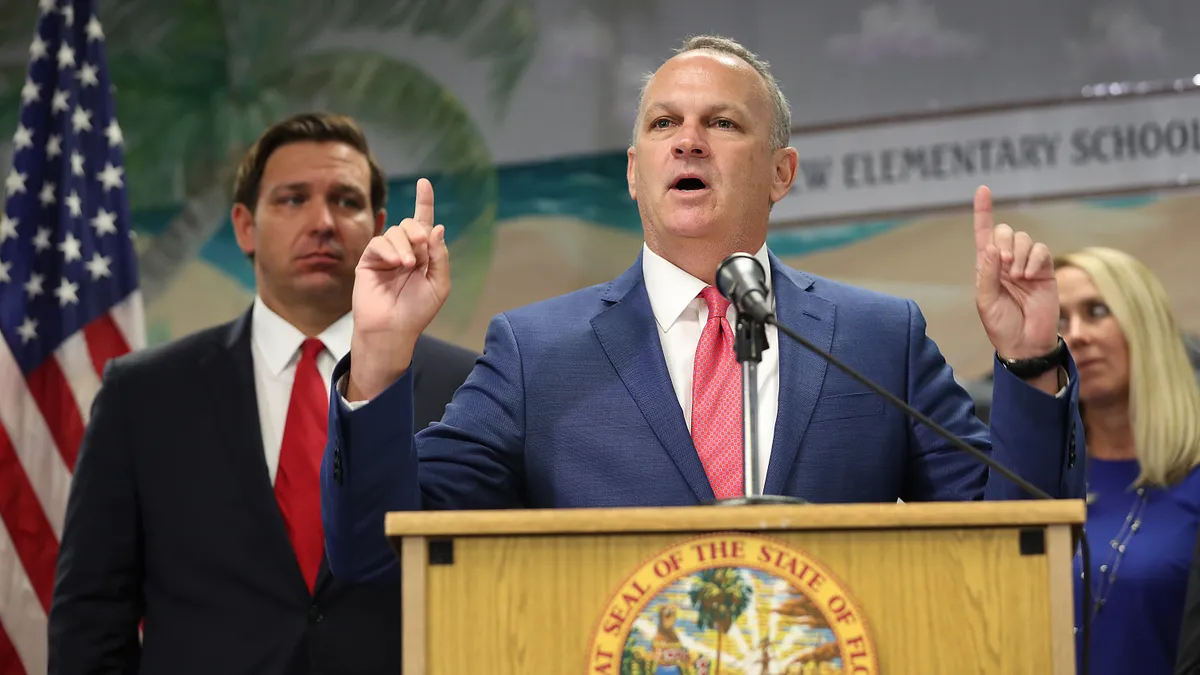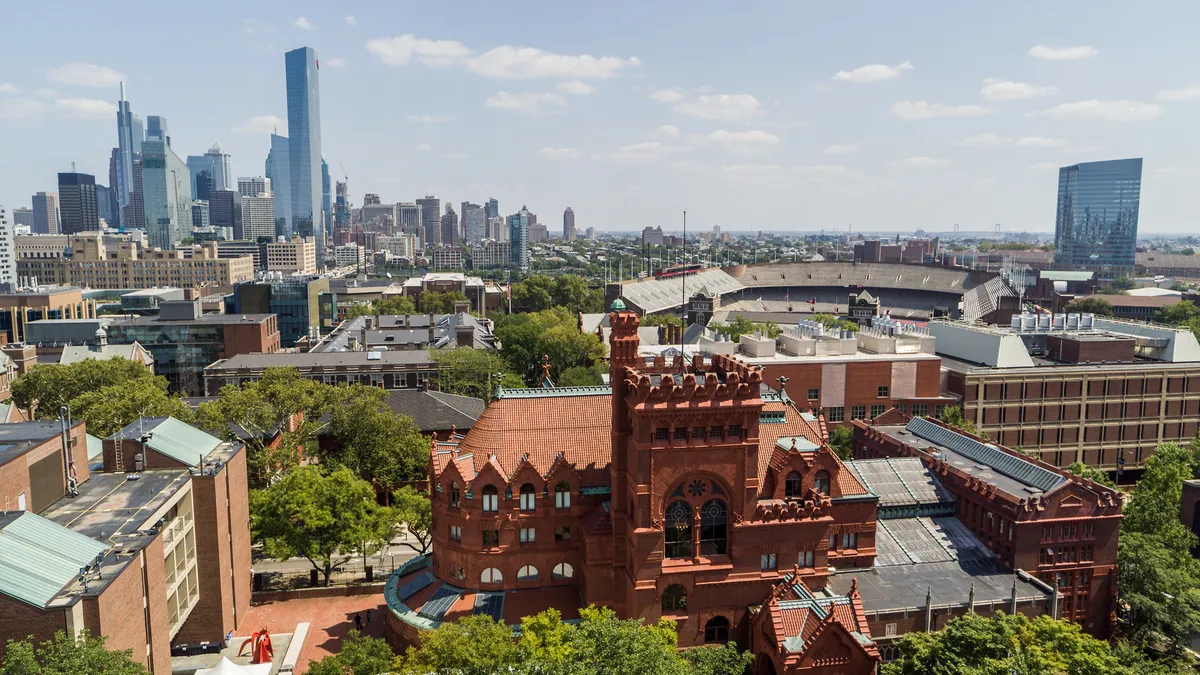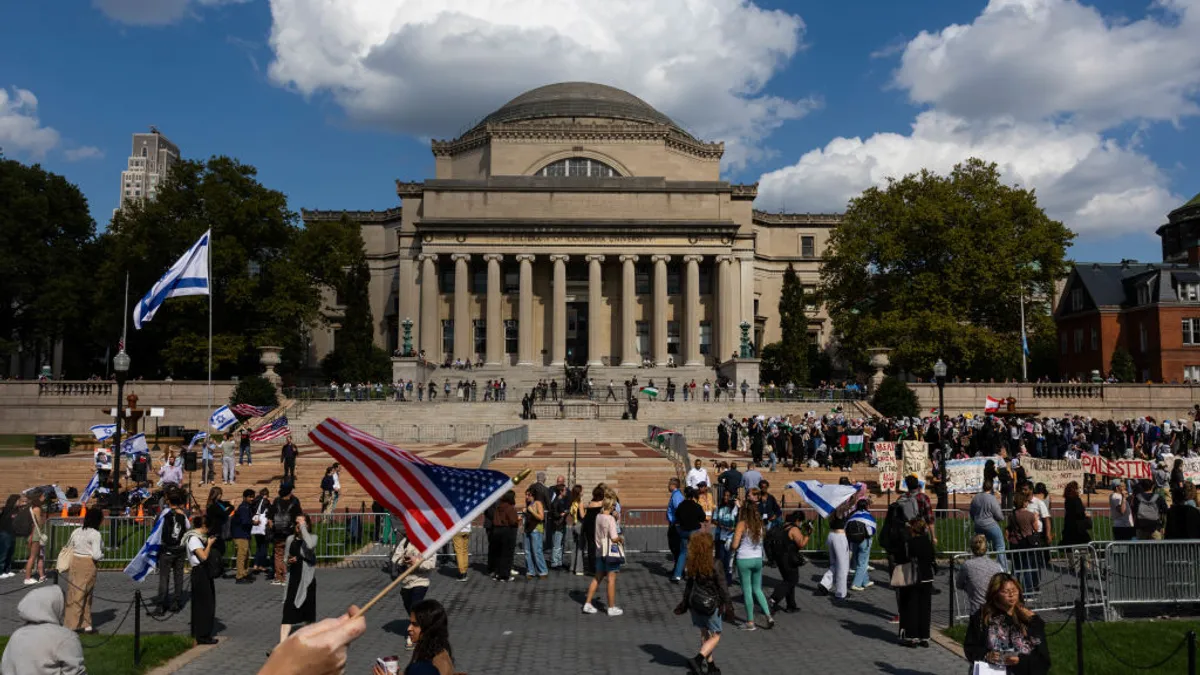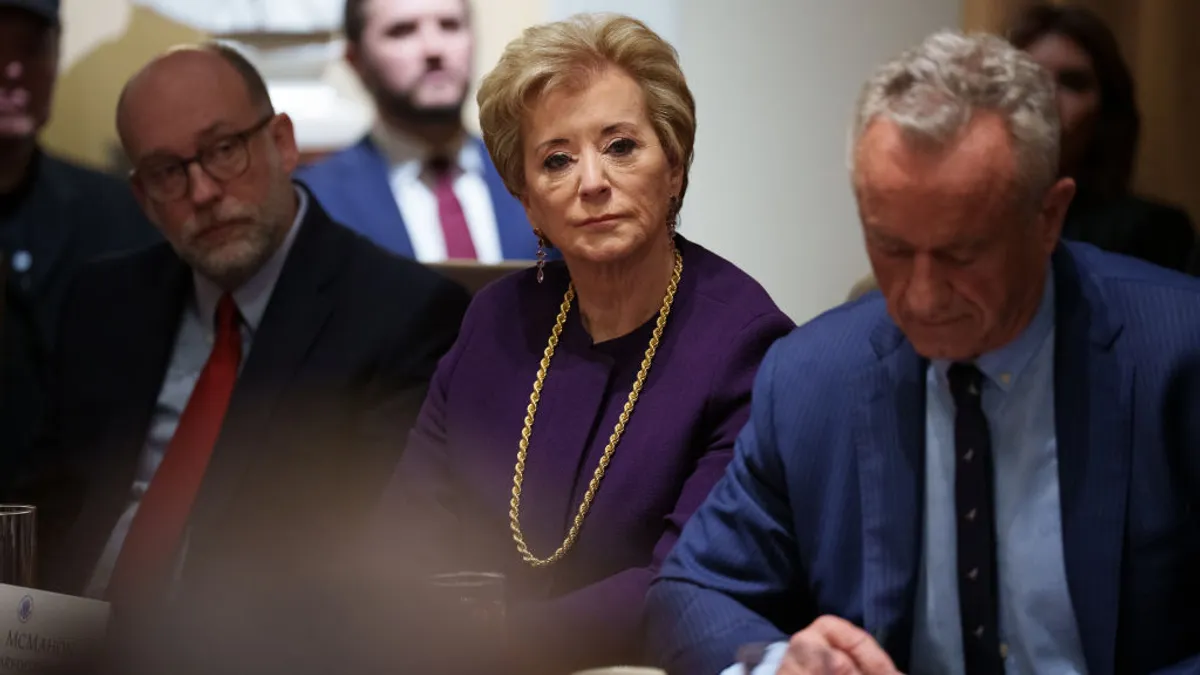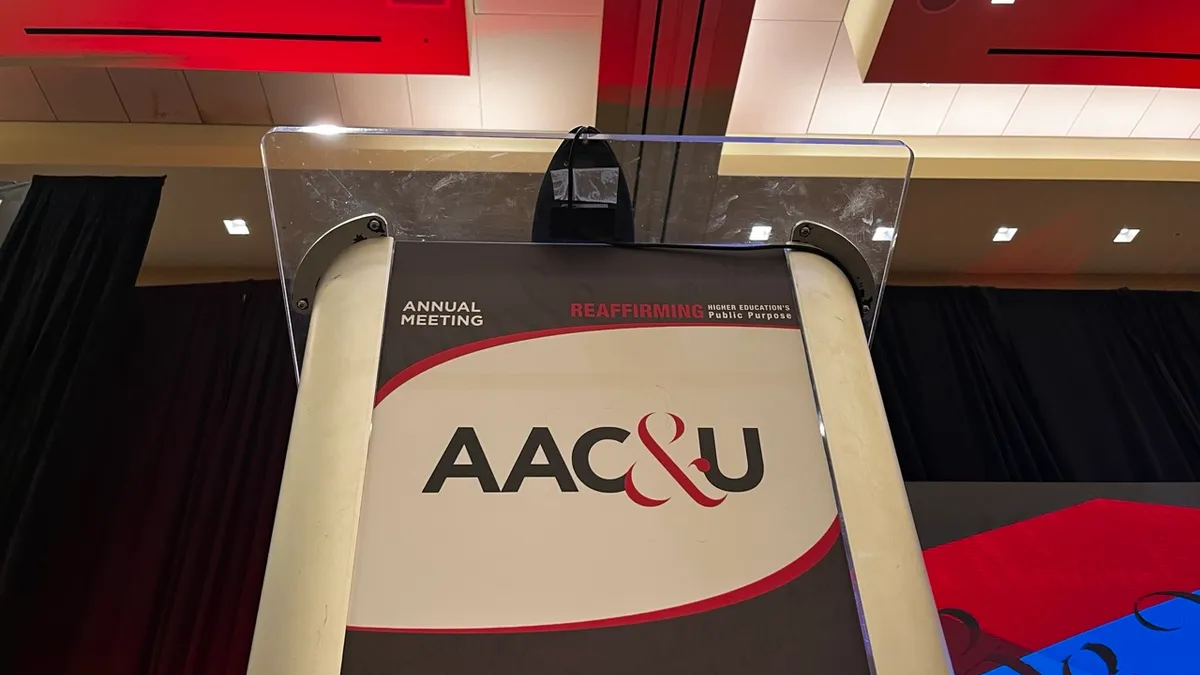The governing board of New College of Florida signed off on its new president’s contract Friday, cementing that Richard Corcoran, a prominent state Republican, will earn more than double his predecessor at almost $700,000 a year.
New College’s board gave its blessing over objections of students, parents, alumni and faculty, who all deemed Corcoran’s compensation far too generous for the former Florida House speaker — who has never served as a college president.
Corcoran will be one of Florida public colleges’ highest-paid presidents, despite leading an institution a fraction the size of campuses such as Florida International University, whose interim president earns $650,000 annually. Experts in presidential contacts have also called the package unusually lavish.
Approval of Corcoran’s contract represents the latest development in a saga at New College, where early this year, Gov. Ron DeSantis named a new slate of board members. They are a collection of right-wing voices who have since radically transformed Florida’s sole public liberal arts institution, firing the previous president, disbanding its diversity office, and creating an intercollegiate athletics program.
How did Richard Corcoran arrive at New College?
The newly conservative board named Corcoran interim president in February after firing his predecessor, Patricia Okker, the month prior.
As New College took up its presidential search in April, Corcoran stood out as a favorite. Board members had lauded his work before and after they named him as one of three finalists for the job in August.
The other two contenders were a University of Central Florida professor and a former college president who has helmed religious institutions.
But, as expected, New College’s board went with Corcoran.
Corcoran, who was also the state’s former education commissioner, had vied for the Florida State University presidency in 2021. But at the time, he was a member of the Florida university system governing board, which oversees presidential hiring. The institution’s accreditor flagged his candidacy as a potential conflict of interest and he did not move forward.
What’s in the contract?
Corcoran’s contract in his new job, which runs through February 2028, gives the newly minted president an $84,000 housing allowance, a $12,000 car stipend, up to $18,000 for moving expenses and $104,850 in deferred compensation.
It also offers the possibility of retention and performance bonuses worth hundreds of thousands of dollars. For the retention bonus, Corcoran will be paid $200,000 twice, at the three- and five-year marks of his contract.
His performance bonuses could net him up to $200,000 annually.
Mercer, a consultant New College hired to determine appropriate compensation, recommended an entire presidential package be worth between roughly $894,000 and $1.5 million.
Amy Reid, a French professor at New College and the board faculty representative, raised concerns during Friday's board meeting that some performance bonus goals the board set for Corcoran were nebulous.
A couple of the benchmarks were exact — increase enrollment to 1,200 students and hold a second-year student retention rate of 85% by the end of his fifth year. IThe college's enrollment was 689 in fall 2022, federal data shows.
But other metrics are vague, Reid said, like the board’s decree that Corcoran “enrich academic programs and offerings.”
She urged that the board firm up these targets, and recommended adding a contract provision that ensures he maintains “the caliber” of students and the college’s academic offerings.
Reid pointed to what she described as concerning trends — New College plummeting 24 places in U.S. News and World Report’s latest liberal arts institution rankings to tie for 100th, and a significant decline in student retention rates.
Some 27% of the overall student body left before fall 2023, reportedly double the share that had departed in each of the previous two years. And only 65% of first-year students stayed for their sophomore year. That’s compared to about 75% the previous year.
“The first-year retention rate is the lowest in memory,” Reid said.
Ron Christaldi, who joined the board in 2020 and said he negotiated the contract with Corcoran, said the governing body doesn’t have to provide Corcoran his full performance bonuses. And the board can update and make more precise the goals it wants him to achieve, Christaldi said.
Christaldi said he felt the contract, and Corcoran’s hiring, would help work toward one of the board’s most important mandates — ensuring leadership stability.
“This contract is not about what we pay an individual, in my opinion,” Christaldi said. “It’s how we achieve the goals of this institution.”
Reid also asked board members to strike a portion of the contract that guarantees Corcoran a faculty job after his presidential tenure unless he's fired for cause. She said the board picked Corcoran in part because of his political connections, but that he has little experience as an educator.
The board voted against Reid’s request.
New College’s future
Corcoran’s permanent installation as president essentially ensures DeSantis’ vision for New College will persist. DeSantis, a Republican competing for the White House in 2024, had made remodeling public higher education a plank of his campaign.
He has sought to transform New College into an institution like Hillsdale College, a darling of the right for its clear conservative bent and its rejection of federal aid.
Matthew Spalding, one of the DeSantis appointees and a Hillsdale professor, argued Friday that the board was saving New College “from a very bad spot,” but did not go into further detail.
In terms of enrollment, New College’s actually jumped a bit from fall 2013 to 2014 from 793 students to 834, according to federal data. It remained steady for a few years before a more significant drop between fall 2018 and 2019, when the college went from 837 students to 726.
Spalding said he took exception to critics’ characterization that the board initiated “a hostile takeover” of the college. This was the battle cry of New College students and faculty, some of whom filed a complaint with the U.S. Department of Education that the fresh leadership was openly hostile toward the LGBTQ+ population on campus.
Other changes since the board's turnover include abolishing the college’s gender studies program. The upheaval has resulted in a faculty exodus in addition to the student one. More than one-third of faculty did not return for fall 2023.



